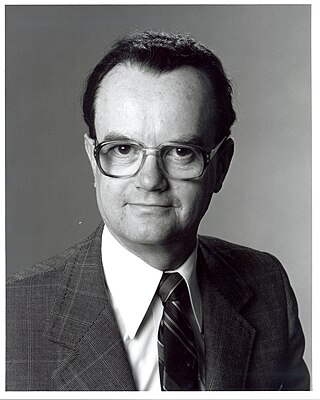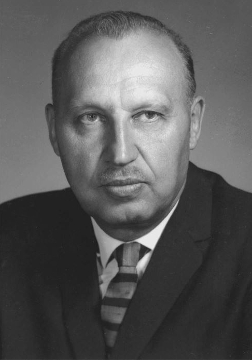Related Research Articles

Ivan Peter Fellegi, OC is a Hungarian-Canadian statistician and researcher who was the Chief Statistician of Canada from 1985 to 2008.

Leslie Kish was a Hungarian-American statistician and survey methodologist.
Kristen Marie Olson is an American sociologist and statistician specializing in survey methodology. She is the Leland J. and Dorothy H. Olson Professor of Sociology at the University of Nebraska–Lincoln and also directs its Bureau of Sociological Research.
Barbara Reskin is a professor of sociology. As the S. Frank Miyamoto Professor of Sociology at the University of Washington, Reskin studies labor market stratification, examining job queues, nonstandard work, sex segregation, and affirmative action policies in employment and university admissions, mechanisms of work-place discrimination, and the role of credit markets in income poverty and inequality.
Margaret E. Martin was an economist and statistician at the U.S. Bureau of the Budget from 1942 to 1973. She was influential in the development of U.S. economic statistics and became president of the American Statistical Association.
Ida Irene Hess was an American statistician who was an expert on survey methodology for scientific surveys and who directed the University of Michigan Institute for Social Research.
Lenore Alice Epstein Bixby was an American statistician who worked with the Social Security Administration and the National Academy of Sciences.
Wendy L. Martinez is an American statistician. She directs the Mathematical Statistics Research Center of the Bureau of Labor Statistics, and is the coordinating editor of the journal Statistics Surveys. In 2018, Martinez was elected president of the American Statistical Association for the 2020 term.
Mary Elinore Thompson is a Canadian statistician. She is Distinguished Professor Emerita of Statistics and Actuarial Science at the University of Waterloo, the former president of the Statistical Society of Canada, and the founding scientific director of the Canadian Statistical Sciences Institute. Her research interests include survey methodology and statistical sampling; she is also known for her work applying statistics to guide tobacco control policy.
Jane Forer Gentleman was an American-Canadian statistician, the second female president of the Statistical Society of Canada, and the first winner of the Janet L. Norwood Award For Outstanding Achievement By A Woman In The Statistical Sciences.
Shirley Kallek was an American economic statistician known for her work at the United States Census Bureau. She was president of the Caucus for Women in Statistics and of the Washington Statistical Society.
Cynthia Zang Facer Clark is an American statistician known for her work improving the quality of data in the Federal Statistical System of the United States, and especially in the National Agricultural Statistics Service. She has also served as the president of the Caucus for Women in Statistics and the Washington Statistical Society. As of 2018 she is executive director of the Council of Professional Associations on Federal Statistics.
Margaret Gurney was an American mathematician, statistician, and computer programmer. Originally trained in the mathematical study of partial differential equations at Swarthmore College, Brown University, and the University of Göttingen, she came to work for the United States Census Bureau. There, she became known for her expertise in sampling, stratified sampling, and survey methodology. At the Census Bureau she also worked as an early programmer of the UNIVAC I computer. Later, she became an international consultant, teaching statistical methods in developing countries. She won the Department of Commerce Silver Medal and was recognized as a Fellow of the American Statistical Association.
Besse Beulah Day was an American statistician known for her contributions to the statistics of forestry and naval engineering, and in particular for pioneering the use of design of experiments in engineering.
Jill Marie Montaquila DeMatteis is an American statistician specializing in survey methodology. She has worked as a statistician in the US Bureau of Labor Statistics, and is a research associate professor at the University of Maryland, College Park and a vice president in the Statistics and Evaluation Sciences Group of Westat.
Li Lily Wang is a Chinese statistician whose research interests include nonparametric statistics, semiparametric statistics, large data sets and high-dimensional data, and official statistics. She is an associate professor of statistics at George Mason University.
Barbara Ann Boyes was a US government statistician.
Elizabeth A. (Betsy) Martin is a former American statistician and environmental activist, known for bringing principles from cognitive science into survey design, and for improving the ability of the United States census to count homeless people. She is a former president of the American Association for Public Opinion Research.
Cathryn S. Dippo is an American statistician. She became a fellow of the American Statistical Association in 1989.
References
- ↑ Contact us, Office of Survey Methods Research, retrieved 2019-12-06
- ↑ AMS-ASA-MAA-SIAM Data Committee Past Members, American Mathematical Society , retrieved 2019-12-06
- 1 2 "Polly Phipps", A Statistician's Life, Celebrating Women in Statistics, Amstat News, March 1, 2019
- ↑ Reskin, Barbara F.; Roos, Patricia A. (2009), Job Queues, Gender Queues: Explaining Women's Inroads Into Male Occupations, Temple University Press, pp. x, 354, ISBN 9781439901595
- ↑ Montaquila, Jill (September 2007), "Washington Statistical Society 2006–07 Annual Report", Newsletter of the Washington Statistical Society
- ↑ "WSS Members Elected as Fellows of the American Statistical Association" (PDF), Newsletter of the Washington Statistical Society: 7, July–August 2013